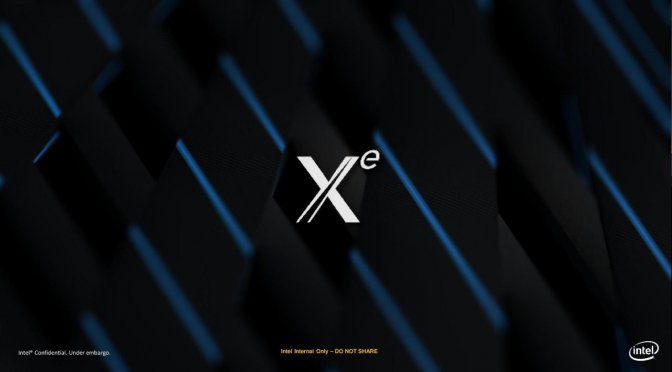Intel has confirmed at its Developer Conference ‘IDC’ 2019 in Tokyo that its new discrete Xe GPUs will release in 2020. Moreover, the blue team confirmed that these GPUs will support Ray Tracing, something that will please a lot of gamers.
Unfortunately, Intel did not reveal any additional details. Still, it’s good knowing that these are still planned for a 2020 release, and that they will support Ray Tracing. Again, Intel did not provide any extra details about the RT implementation. However, we suspect that the Xe GPUs will have hardware and not software support.
It’s also interesting noting that Raja Koduri has tweeted the following image. This picture shows a brand new Tesla Model X with a really interesting plate. This plate suggests a June 2020 release for the Xe GPUs.
@IntelGraphics pic.twitter.com/T2symDHxJ7
— Raja Koduri (@RajaXg) October 4, 2019
UPDATE:
Intel got in touch with us in order to clarify some things.
“Japanese site MyNavi.jp recently reported about the IDC presentation given in Tokyo. The slides that were shown at the event were from the Blueprint event that was held a few weeks prior to Computex, so this is not new content or new performance data. We also clarified that our speaker at the event did not mention ray-tracing or refer to the Xe graphics architecture found in Tiger Lake processors as ‘Gen 12’ but the resulting Google translation of this article caused confusion. The mention of the Tekken 7 game adding ray-tracing is a speculation from the Japanese site, and did not come from the Intel speaker. The speaker also did not announce specific FPS targets for next-gen graphics but instead made an assumption based on earlier performance gains that we made.
Jim Jeffers mentioned ray-tracing support in May of this year at the FMX conference in Germany. This was what he covered in his blog – “I’m pleased to share today that the Intel® Xe architecture roadmap for data center optimized rendering includes ray tracing hardware acceleration support for the Intel® Rendering Framework family of API’s and libraries.” “

John is the founder and Editor in Chief at DSOGaming. He is a PC gaming fan and highly supports the modding and indie communities. Before creating DSOGaming, John worked on numerous gaming websites. While he is a die-hard PC gamer, his gaming roots can be found on consoles. John loved – and still does – the 16-bit consoles, and considers SNES to be one of the best consoles. Still, the PC platform won him over consoles. That was mainly due to 3DFX and its iconic dedicated 3D accelerator graphics card, Voodoo 2. John has also written a higher degree thesis on the “The Evolution of PC graphics cards.”
Contact: Email

